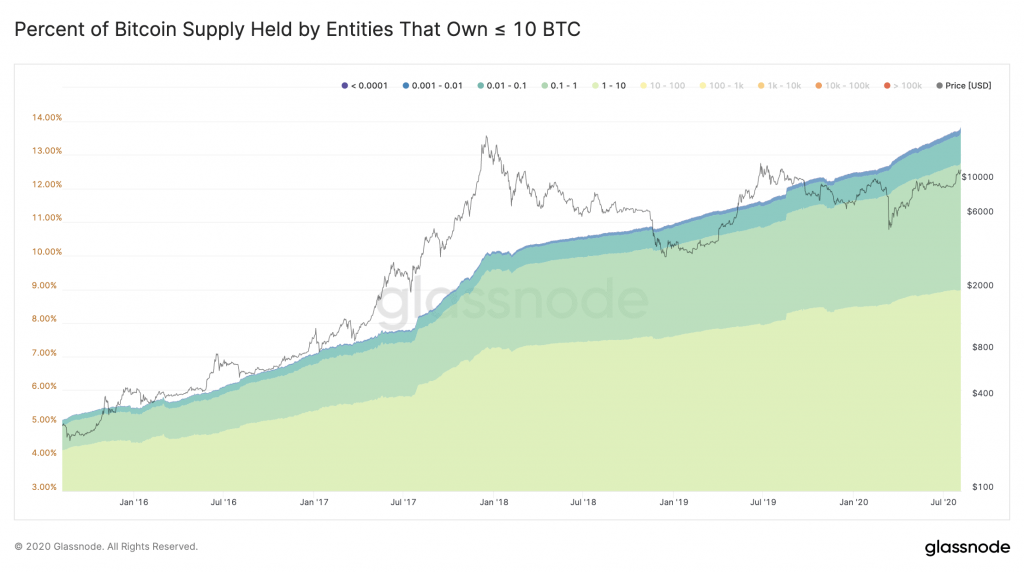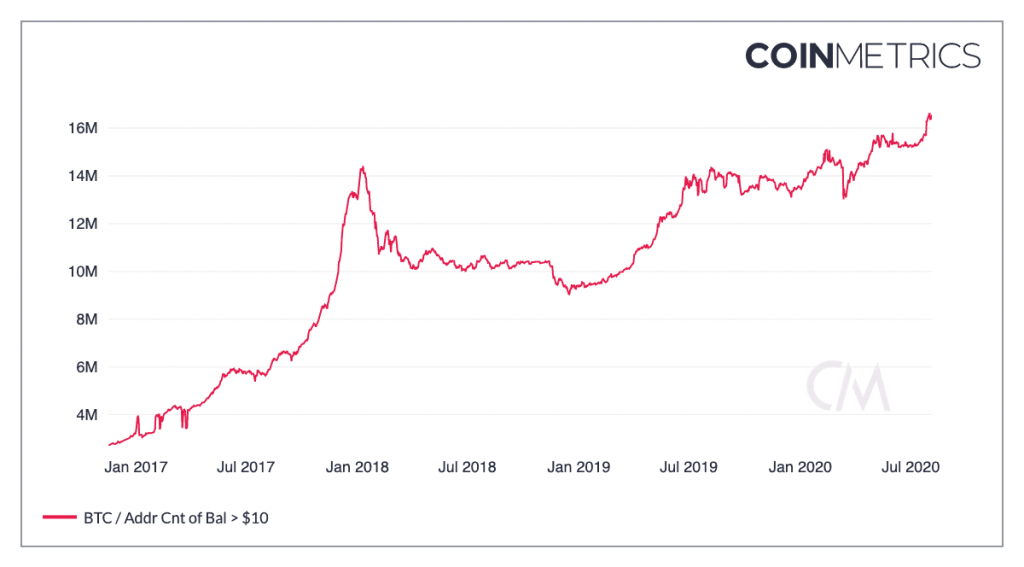Table of Contents
Recently, former CEO of the insurance giant Prudential, George Ball in an interview with Reuters, said that bitcoin is an attractive long-term investment bet. He thinks that BTC is a safe haven for traders and investors.
It is important to know that Mr. Ball was previously a hater of bitcoin, cryptocurrencies and blockchain technology.
But then what made him change his heart? Why did a company like MicroStrategy buy $250 million worth of bitcoins last week?
Because these mainstream financial market bigwigs now believe that BTC has ‘concrete’ intrinsic value as opposed to traditional assets and markets.
And why’s that?
Because bitcoin is decentralized, durable, portable, fungible, scarce, divisible, and recognizable. And most importantly, the cryptocurrency’s design is based on the standard principles of mathematics.
Get WazirX News First
Decentralized
Probably the most unique trait that imparts bitcoin its value is decentralization. By the very design of its protocol, Bitcoin operates over a public network of computers – blockchain.
This network of participants keeps Bitcoin running by ensuring that every member has access to the latest version of the blockchain i.e the longest chain.
No central authority, or a third party organization controls Bitcoin. And recent data suggests that over the last 5 years, bitcoin’s ownership has become much more decentralized.
This means that the concentration of entities holding large number of BTC has reduced and those holding small quantities has significantly increased. One of the reason why bitcoin’s value is increasing.


Durability
Bitcoins are inherently lines of code that exist as ledger entries on a public and distributed network. For the last 11 years, this network has been running 24X7X365 with 99.98 percent uptime.
Cryptography secures BTC transactions. It also makes them remarkably efficient. Also, Bitcoin’s code is available in a public repository on GitHub, which in turn is stored in the Arctic Code Vault. From what it looks, bitcoin is a pretty durable asset and can stand the tests of time.
Portability
There are a number of wallet options available where you can transfer your BTC holdings and move around freely, travel anywhere you like.
You can access your bitcoins from anywhere across the world. Because the money that you spend on investing in BTC actually gets you ownership of a section on the Bitcoin blockchain.
This means that BTC is free from a physical form or a place of storage.
Bitcoin is so portable that now it is not necessary to connect to the internet for conducting a BTC transaction.
State-of-the-art advancements by Bitcoin development companies like Blockstream have made it possible to make BTC transfers without the web. So much so, that transactions can happen from outer space as well!
Scarcity
Scarcity is the most characteristic attribute of bitcoin that makes it a valuable asset. There will only ever be 21 million bitcoins.
This is a feature that pre-programmed in the Bitcoin right from the start when the first block was mined. Mining or the process of producing new BTC requires proof-of-work.
Miners have to prove that their hardware is capable of verifying transactions on the bitcoin protocol amid rising mining difficulty. This is how they win BTC rewards for successfully verifying transactions and circulating them in the market.
Also, a technical feature even known as halving which reduces the bitcoin block reward every four years, ensures that powerful miners don’t empty the entire remaining supply.
Divisibility
Divisibility is another aspect that makes bitcoin a valuable asset. 1 BTC is divisible into 10 million small entities. Each entity is a satoshi.
This means that bitcoin’s limited supply cannot hinder its adoption. The world’s topmost cryptocurrency can find usage even in fractional quantities, up to the eighth decimal place!
With regards to investment too, it is not necessary to buy 1 whole BTC. You can buy a few satoshis or just a small portion of the entire bitcoin.
Fungibility
Similar to all other legitimate assets like gold, and state-backed currencies like the INR, every bitcoin can be exchanged for another.
Bitcoins irrespective of their history of ownership and usage still continue to hold value up until the individual satoshi.
Bitcoins/Satoshis emerging from one source are completely interchangeable with an equivalent number of bitcoins/satoshis emerging from some other source.
Recognizable
As of date bitcoin has garnered a lot of respect and credibility as an investable asset. Despite being criticized as a scam, and a Ponzi scheme, BTC has made a lot of money for investors especially the early entrants.
Also, it has accrued quite some support from conventional financial market and technology influencers like Federal Reserve chairman Jerome Powell, billionaire macro investor Paul Tudor Jones, Twitter founder, and CEO Jack Dorsey, etc.
These are some of the attributes that explain why bitcoins have value. Know any other feature, that imparts value to BTC? Share them with us in the comments below!
Frequently Asked Questions
Is Bitcoin A Good Investment For The Future?
Some investors are afraid of the risks or devastation, but others are very eager to pursue the possibility of profit from a Bitcoin investment. A Bitcoin investment is similar to stock investing, except it can be more volatile.
How Can I Convert Bitcoins To Cash?
Bitcoin may be converted to cash in various ways, including crypto exchanges, Bitcoin ATMs, Bitcoin Debit Cards, and Peer to Peer Transactions. You may do this by using Bitcoin exchanges like WazirX. You may also sell Bitcoin for cash faster and more anonymously through a peer-to-peer marketplace.
How Many Bitcoins Will Ever Be Created?
The source code of Bitcoin stipulates that it must have a restricted and finite quantity. As a result, only 21 million Bitcoins will ever be generated. These Bitcoins are added to the Bitcoin supply at a predetermined rate of one block every ten minutes on average. The supply of Bitcoins will be depleted once miners have unlocked this number of Bitcoins. It's possible, however, that the protocol for Bitcoin will be altered to allow for a higher supply.
What Is Bitcoin Used For?
Bitcoin was created as a means of sending money over the internet. The digital currency was designed to be a non-centralized alternative payment system that could be used in the same way as traditional currencies. Bitcoin is being used by an increasing number of businesses and individuals. This includes establishments such as restaurants, apartments, and law firms.
How Many Bitcoins Are There?
There are 18,730,931.25 Bitcoins in circulation as of June 2021. The total number of Bitcoins that would ever be there is just 21 million. On average, 144 blocks are mined every day, with 6.25 Bitcoins per block. The average number of new Bitcoins mined every day is 900, calculated by multiplying 144 by 6.25.
What Are The Chances Of Bitcoin Crashing?
Two Yale University economists (Yukun Liu and Aleh Tsyvinski) produced research titled "Risks and Returns of Cryptocurrency" in 2018. They looked at the possibility of Bitcoin crashing to zero in a single day. The authors discovered that the chances of an undefined tragedy crashing Bitcoin to zero ranged from 0 percent to 1.3 percent and was around 0.4 percent at the time of publishing, using Bitcoin's history returns to determine its risk-neutral disaster probability. Others claim that because Bitcoin has no intrinsic value, it will inevitably crash to zero. On the other hand, Bitcoin advocates argue that the currency is backed by customer confidence and mathematics.
Is Bitcoin Mining Free?
Bitcoin mining isn't free, but it can be tried on a budget. Bitcoin mining is an essential part of the blockchain ledger's upkeep and development and the act of issuing new Bitcoins. It is accomplished by the use of cutting-edge computers that tackle complicated computational arithmetic problems. The effort of auditor miners is rewarded. They're in charge of ensuring that Bitcoin transactions go off without a fuss and that they're legal.
What Is Bitcoin?
Bitcoin is a decentralized digital currency that may be purchased, traded, and traded without intermediary like a bank. Bitcoin is built on the blockchain, which is a distributed digital ledger. Wei Dai suggested a new kind of money that relies on cryptography rather than a central authority to oversee its production and transactions on the cypherpunks mailing list in 1998. Bitcoin was the first application of that notion. In 2009, Satoshi Nakamoto sent out the first Bitcoin specification and proof of concept to a cryptography mailing group.
Is Bitcoin And Cryptocurrency The Same Thing?
Bitcoin is a cryptocurrency that was designed to facilitate cross-border transactions, eliminate government control over transactions, and streamline the entire process without third-party intermediaries. The absence of intermediaries has resulted in a significant reduction in transaction costs. Satoshi Nakamoto, the creator of Bitcoin, created the first cryptocurrency in 2008. It began as open-source software for money transfers. Since then, plenty of cryptocurrencies have emerged, with some focusing on specific fields.
What Type Of Currency Is Bitcoin?
Bitcoin is a type of digital currency or cryptocurrency. In January 2009, Bitcoin was established. It's based on Satoshi Nakamoto's ideas, which he laid out in a whitepaper. The name of the individual or people who invented the technology remains unknown.
 Disclaimer: Click Here to read the Disclaimer.
Disclaimer: Click Here to read the Disclaimer.





















